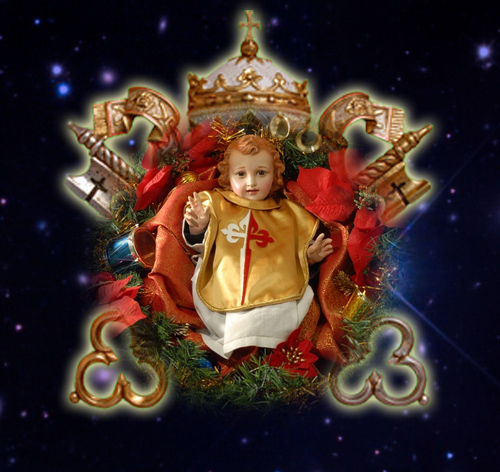Biographical selection:
After martyrdom, the most noble and courageous sacrifice one can make to God is that of the virginity and chastity. This is why the liturgical calendar chose the first day after Christmas to celebrate of martyrdom of St. Stephen, model of the martyrs, and the second day, December 27, to celebrate the feast of St. John, model of virgins.
St. John was from the family of David, and therefore a member of the family of the Most Holy Virgin; he was a relative of Our Lord by flesh. While the others were Apostles and Disciples, he was the Friend of Our Lord. This predilection was because of his virginity.
He was, according to the Gospel, the Disciple that Jesus loved. This simple phrase is enough to give him glory. This love was for St. John the starting point of the other gifts he received. He was, for example, the first defender of the Divine Word, the Son as co-substantial to the Father, which was being denied by a heresy. The teachings of St. John on this point soar to the heights of the Divine Sun, like an eagle that flies toward the blazing star.
If the face of Moses shone with light after he spoke with God, how much more brilliant and resplendent the face of St. John would have been after he rested his head over the Heart of Jesus, where he received secret treasures of wisdom and science.
Christ was the son of Mary. When He died, Jesus left Mary to St. John. Who on earth could merit such a legacy? The Savior could have left the care of the Most Holy Virgin to Angels. But from the height of the Cross He saw his virgin Disciple, and his chastity made him worthy of such a priceless treasure. The beautiful comment of St. Peter Damian describes this very well: “Peter received the Church, the Mother of men, as his inheritance, but John received Mary, the Mother of God.”
Comments of Prof. Plinio:
There are many profound thoughts in this selection based on Dom Gueranger. I will not comment on all, but just several points.
First, it is very true that the sacrifice of virginity, the oblation of chastity, is so agreeable to God that it second only to martyrdom. This is because it confers on a soul a special affinity with God. Although chastity is a virtue that pertains to the body, it is principally a virtue of the spirit that rejects what is sordid and leaves the soul free to take wing in the realm of the spirit.
It represents a victory of the spiritual over the material that ennobles and increases the dignity of a human creature, giving him greater affinity with God. For this reason Our Lord loved St. John. He is remembered as the disciple that Jesus loved. The others were Apostles and Disciples, but he was the Friend, which means that he was the one closest to Him, the one whom Our Lord honored with a great confidence and intimacy. Our Lord had an appreciation for him that He did not have for the others.
An episode at the Last Supper is very characteristic in this respect. St. Peter wanted to know which of them would betray Our Lord after He told them that this would happen. So, St. Peter requested St. John to ask the question. St. Peter was not able to ask Our Lord directly and went to St. John as mediator.
The latter rested his head over Jesus’ chest and asked Him. You see here an allusion to the devotion to the Sacred Heart of Jesus. St. John with his ear on the Divine Chest heard the Heart of Jesus beating. He understood those pulsations not only as a manifestation of love for mankind but also of anguish and sorrow because the Passion was drawing near.
Therefore, St. John appears as a virgin soul especially close to Our Lord and very devoted to the Sacred Heart of Jesus.
Second, another gift unarguably beyond compare is that of receiving Our Lady as Mother. When He was dying, Our Lord left this priceless treasure, Our Lady, to His friend and favorite Disciple. To receive Our Lady is to receive the Queen of Heaven and Earth, the first among creatures after Christ. To receive Our Lady is to receive everything that God can give to a man. He could give nothing greater than that.
Here you have, then, another manifestation of the love God has for virgin souls. Our Lady was a virgin – a virgin who gave birth to a virgin Son, who at His death gave her to a friend, the virgin Disciple who was St. John.
Third, as a true counter-revolutionary, Dom Guéranger understood well that a full picture of St. John could not be sketched without mentioning that he was one of the first fighters against heresy. The first heresy that was already starting at that time regarded the human and divine natures of Our Lord Jesus Christ. St. John started fighting against those heretics as soon as they appeared. He was, therefore, a precursor of all those combatants for the Catholic Faith who would exist until the end of time, until the moment when Elias and Enoch will return to fight against the Antichrist.
We have, therefore, ample requests to present to St. John in our prayers. We should ask him to help us acquire the same qualities of soul he had in order to receive the reward granted to him: to have Our Lady with us always.









